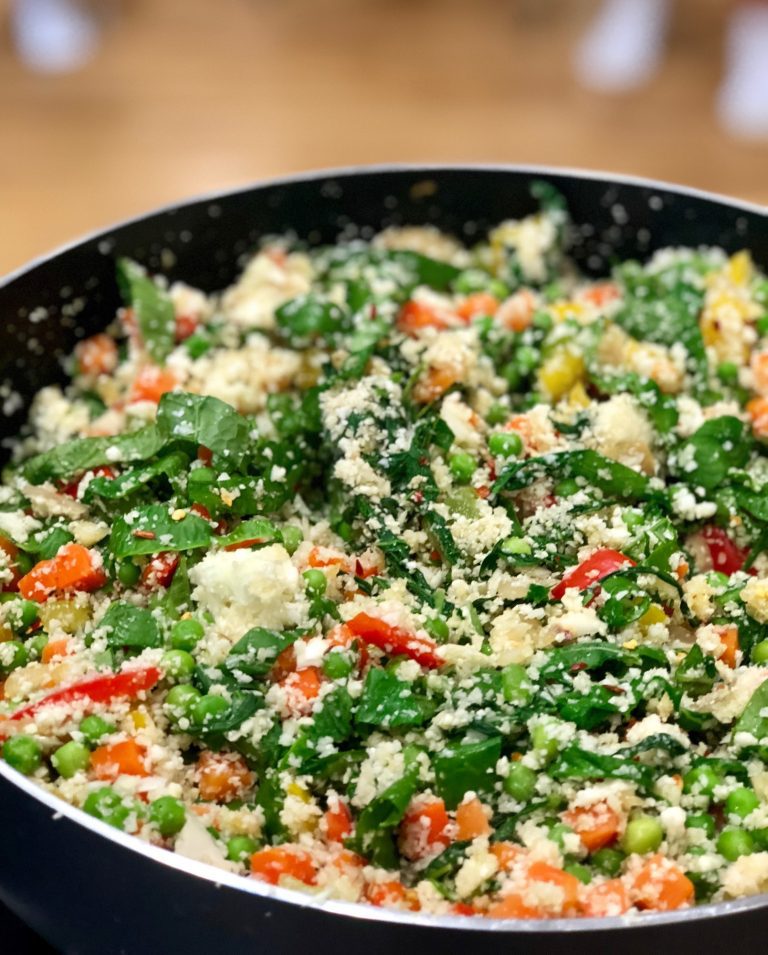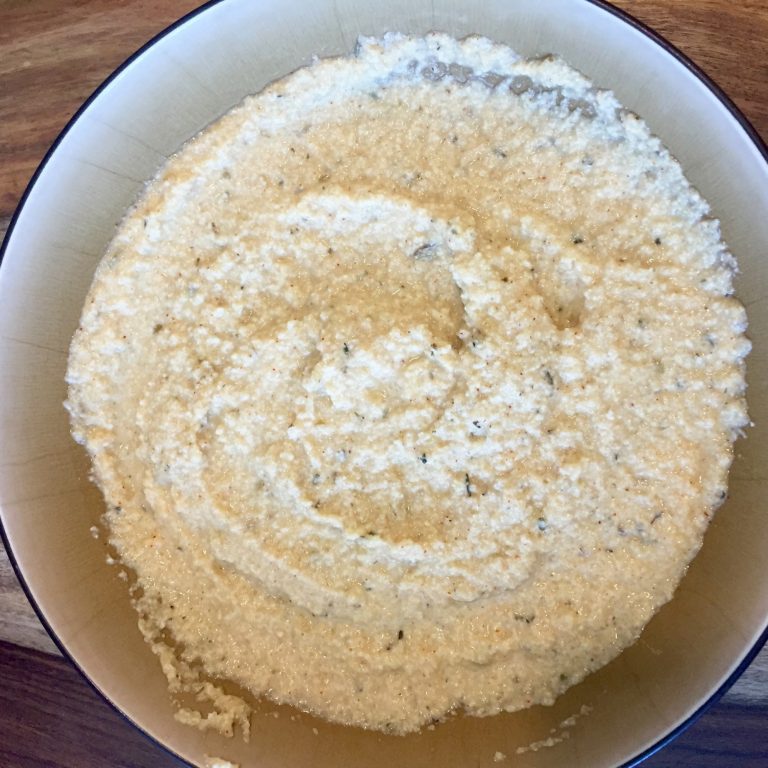Is Your Doctor Treating Your Diabetes the Right Way?
By Nicole Martin
December 26, 2017
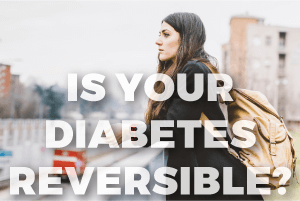
Most doctors understand medicine. And medication. What they don’t always get trained in, though, is nutrition. Is your doctor approaching your type 2 diabetes care the right way?
Two things surprised me the most after working with members here at the Wellness Training Institute for just a few months.
First, because one in ten Americans now has type 2 diabetes, data from the Center for Disease Control (CDC) shows that roughly two percent of Americans are injecting themselves with insulin each day.
That’s 7 million people… and that’s just in our country. For perspective, that’s roughly the populations of Los Angeles, Chicago, and Houston combined.

The second thing that surprised me was how easy it is to get someone off insulin. And the changes necessary are all lifestyle-related. Building healthy dietary habits to crowd out the old, bad ones, and your type 2 diabetes all but disappear within a matter of months.
So, I wondered. Why are doctors putting people on insulin in the first place? If it’s so easy to get off of it, why not nip it in the bud before you even think about pulling out the prescription pad?
When I asked Dr. Dangovian about this, he told me that it’s not that simple.
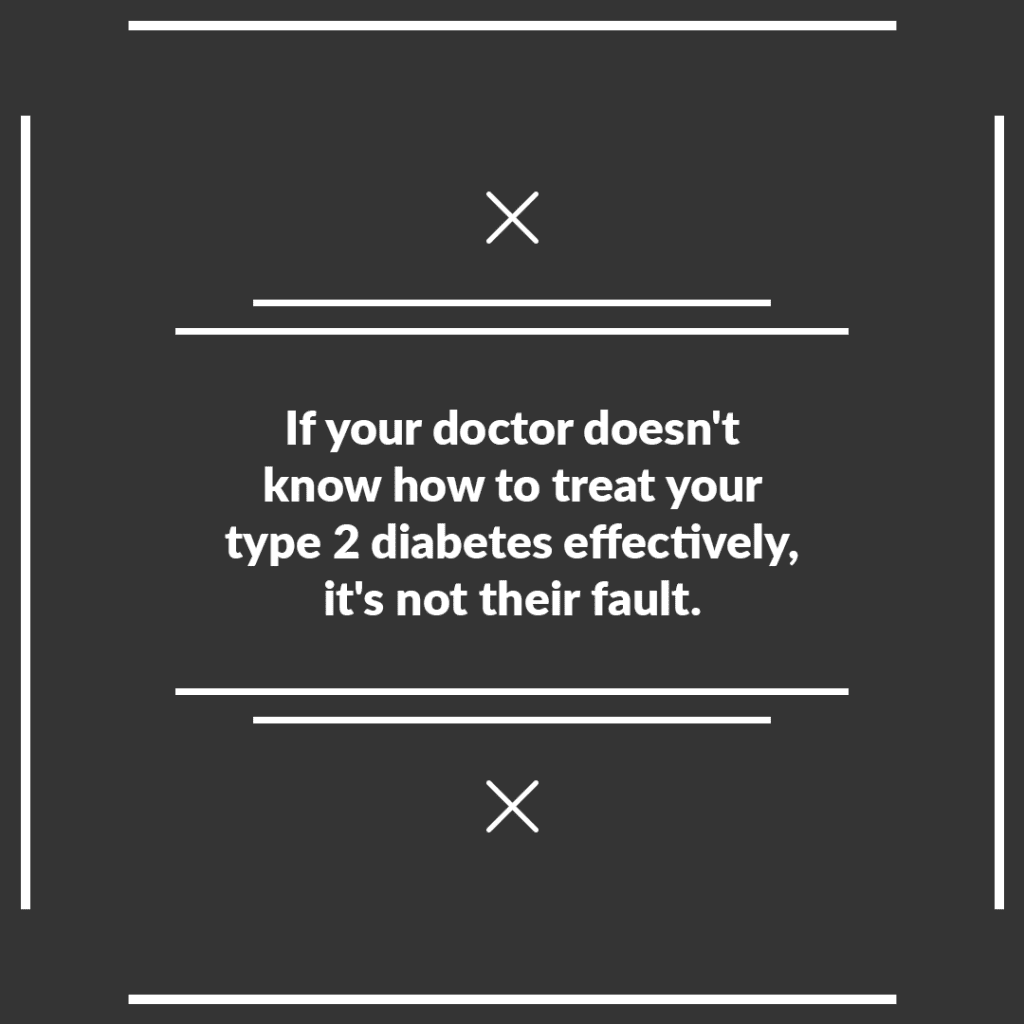
Doctors, he said, know medicine. They know medication. That’s what they learned in medical school. They rarely understand how lifestyle changes can affect their patients and if they do, they don’t have a system that is effective in following up with their patients to make sure they are making the appropriate steps to reverse their disease.
And, honestly? It’s not their fault. Not at all.
For one, it’s hard to know something you haven’t been trained in. And the life of a med student, intern, or someone up to their neck trying to fulfill their residency requirements… they’ve got a ton to learn, to remember, and manage.
Also, the medical system isn’t set up for timely follow-ups. Let’s say you’re a doctor and someone comes in with type 2 diabetes. You know you won’t see this person for at least a few months, so NOT treating their condition the best way you know how—i.e., prescribing insulin or other diabetic medication—would be a massive breach of medical ethics. As a doctor, even if you know the lifestyle elements in treating type 2 diabetes, your hands are tied as to what steps you can legitimately take.
So, again, let me be clear: If your doctor doesn’t know how to reverse your type 2 diabetes effectively, it’s not their fault.
But, here’s the thing…
Taking Ownership
It’s not their responsibility anyway. It’s yours.
It’s your health, and you’re responsible for it.
And once you take that responsibility on and educate yourself about how to reverse your type 2 diabetes? Amazing things can happen.

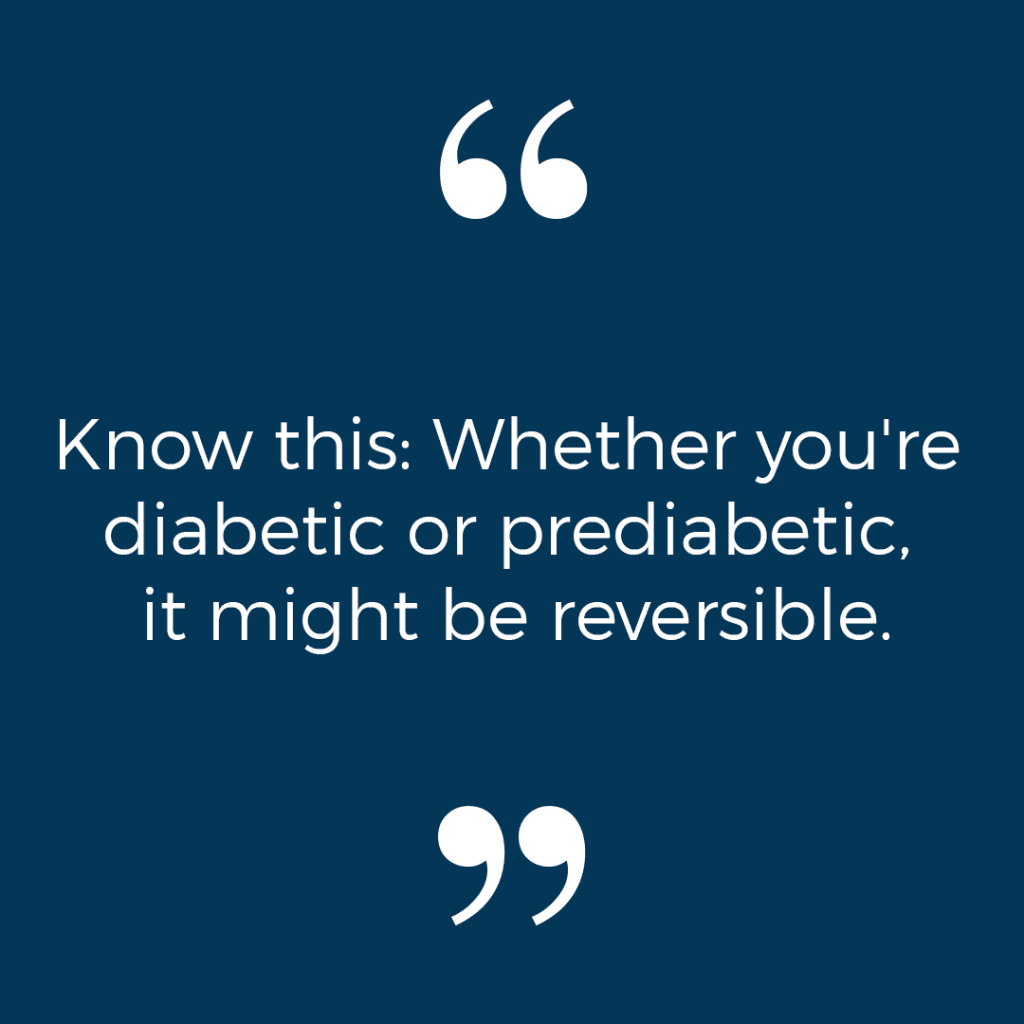
We have a member now who’s A1C levels were off the charts just a few months ago. The A1C (or hemoglobin A1C, or hbA1c) test is a three month average of glucose levels in your blood. If your A1C levels are below 5.7 percent, you’re good to go. No diabetes. If your levels are between 5.7 percent and 6.4 percent, you’re considered prediabetic. Anything 6.5 percent or above and you’re diabetic.
Here at the Wellness Training Institute, we shoot for 5.5 or below and believe prediabetic should be just as big of a red flag as diabetic.
This particular member’s numbers were close to 10.4… which is HIGH.
But through some simple changes in her diet, her A1C is now at 5.8 percent… and it only took four months. AND NO MEDS.
Which is even more amazing when you understand how hard it is to move that number. Since it’s a three-month average, it can take a while for those numbers to come down. Her turnaround is drastic… and it all happened because she educated herself, entered our program, and followed through. Her goal is 5.5 percent, which would mean she’s no longer diabetic. And that goal is in sight!
Type 2 Diabetes is Not Your Fate
The key here is to understand that whether you’re diabetic or pre-diabetic, it could be reversible. And often it can be done without adding more medication. In fact, our goal is always to reduce the number of meds you’re on.

Your doctor may not even know that it’s possible to reverse your diabetes.
But our program members are inspiring examples of the fact that it is possible. And not that hard to do!




